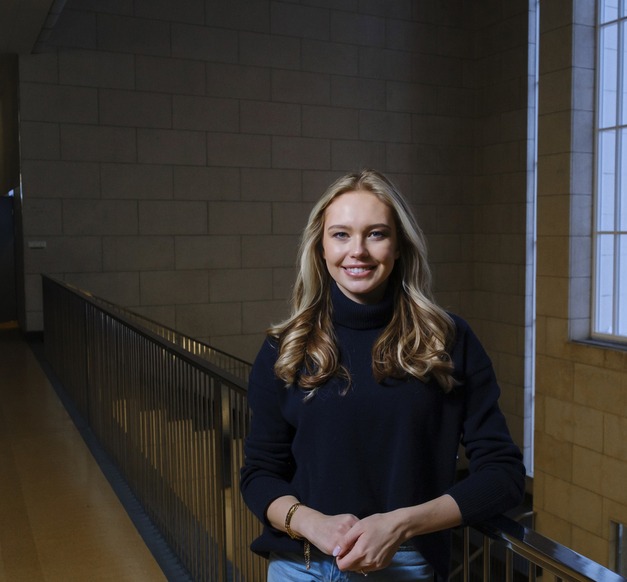
"There is very little research on immigrants as a group here in Iceland. We decided to look into how they felt during the COVID-19 pandemic, since there is already a lot of data about how Icelanders felt during the pandemic and their attitudes toward the public health restrictions and vaccinations," says Katrín Lea Elenudóttir, political science student. This study, which received support from the Student Innovation Fund, was completed last summer and looked at the experiences of immigrants in Iceland during the pandemic. Katrín worked under the supervision of Hulda Þórisdóttir, senior lecturer at the University of Iceland Faculty of Political Science.
The study focused on immigrants from Central and Eastern Europe, specifically Russia and Poland. "Statistical data shows that vaccine hesitancy is highest in Russia and Poland, out of all the countries where vaccination is easily accessible," explains Katrín, adding: "If vaccine hesitancy is so high there, what about people from these countries living in Iceland?"
Katrín's research was conducted as preparation for her BA thesis in political science, for which she intends to research this topic further using a larger cohort. For this study, she recruited ten participants, five from Poland and five from Russia, aged 30-45. She interviewed these participants, asking questions on three distinct themes: where they got their information about the coronavirus pandemic; whether they had been vaccinated against COVID-19 and, if not, why not; and their attitudes towards the public health restrictions imposed by the Icelandic authorities. Katrín's interviewees had all moved to Iceland in adulthood and lived here for the duration of the pandemic.
Conspiracy theories and lack of trust in media from their countries of origin
According to Katrín, four main conclusions can be drawn from the interviews. One of the things that became apparent was that the majority of participants sought information about the pandemic both from the Icelandic media and foreign media, although not from their country of origin.
"They followed Icelandic news and trusted Icelandic media and the same can be said of foreign outlets such as CNN and the BBC, but as a group they had little faith in Polish and Russian media. They did read it, but always with caution, particularly the Russians. They actually avoided Russian media."
Katrín believes that it is important to research immigrants and their experiences. "It's such a large group. There are around 25,000 people from Poland alone in Iceland and although there are fewer Russians, it is still very important to know where these groups are getting their information. We can see that many of them are unvaccinated, which naturally has an impact on public health in the community."

Katrín's findings also show that nine of the ten interviewees were inclined to believe some kind of conspiracy theory related to COVID-19. It is notable that the three people who were most vocal about conspiracy theories were the same people who had not been vaccinated against the disease. The seven interviewees who had been vaccinated, however, still showed signs of vaccine hesitancy. For example, they expressed doubts over the long-term impact of the vaccines. They also expressed doubts over how often they were invited to get vaccinated; for many of them the social impact seemed to play a large role in their decision to take the vaccine.
All interviewees said that they had been very happy with the official response at the start of the pandemic but found it hard to understand why restrictions were relaxed while infection rates could still rocket.
"Perhaps the reasons why nothing was being done were not communicated effectively to them," says Katrín, explaining that when restrictions were lifted, the authorities did not necessarily consider the virus to be dangerous any more, since a large percentage of the population were then vaccinated and the dominant variant at the time was believed to be less harmful.
Research of this kind could help us learn from mistakes
Katrín believes that it is important to research immigrants and their experiences.
"It's such a large group. There are around 25,000 people from Poland alone in Iceland and although there are fewer Russians, it is still very important to know where these groups are getting their information. We can see that many of them are unvaccinated, which naturally has an impact on public health in the community," says Katrín.
She adds that it is important to learn from our responses and possible mistakes in order to be better prepared for future epidemics. "What kind of information is shared and how, and why did some people not comply with instructions and public health measures?" says Katrín and it is clear that we can expect a fascinating BA thesis from her.
Author of the article: Egill Aron Ægisson, MA student in Media and Communication Studies.


